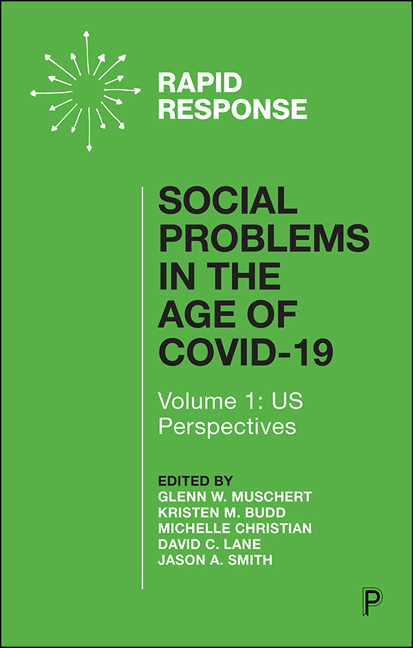12 - Vaccine Opposition in the COVID-19 Age
Published online by Cambridge University Press: 23 March 2021
Summary
The Problem
Hope of ending the COVID-19 pandemic rests mainly on development of an effective vaccine. Availability of a vaccine is only part of the solution, though; Americans’ decisions to receive or forego the vaccine will determine its ultimate success. If too few people immunize, outbreaks will continue. Such outbreaks pose serious health risks to those who cannot vaccinate and translate into continued economic and health care costs, which those in higher-risk and disadvantaged groups disproportionately shoulder. Although a vaccine is not currently available, there are already troubling signs about Americans’ willingness to embrace one. The convergence of the anti-vaccination movement with the public's growing distrust of social institutions—including government, medicine, and the media—poses major challenges for COVID-19 immunization efforts.
Vaccine opposition was a growing social problem before COVID-19, and abundant misinformation, economic uncertainty, politicization of the pandemic, and anxiety about government overreach following pandemic-related restrictions have exacerbated existing anti-vaccination sentiment. Even during the earliest phases of the US COVID-19 crisis, unfounded reports circulated online suggesting the vaccine would be unsafe, an attempt at surveillance, and/or a dangerous yielding of personal freedom. The New York Times reported that by April 2020, the most widespread falsehood about the pandemic—viewed and shared millions of times in a matter of weeks—involved speculation that Bill Gates had helped create COVID-19 to profit from it and implant a surveillance device into Americans via an eventual vaccine. The viral “Plandemic” video circulating in May 2020 suggested that vaccinations Americans have received in the past make them more susceptible to COVID-19 by weakening their immune systems. In addition, some antivaccination groups see concerns about pandemic-related government restrictions as an opportunity to expand their movements and recruit adherents. During the first wave of the outbreak, anti-vaccination groups were behind some of the protests for ending stay-at-home orders and reopening the economy. These events demonstrate concerted efforts to influence Americans’ views of a COVID-19 vaccine before one is even available. They also suggest that not only is the pandemic affecting views on vaccination, but that these changing views will pose an important barrier to ending the crisis.
- Type
- Chapter
- Information
- Social Problems in the Age of COVID-19 Vol 1Volume 1: US Perspectives, pp. 122 - 133Publisher: Bristol University PressPrint publication year: 2020

